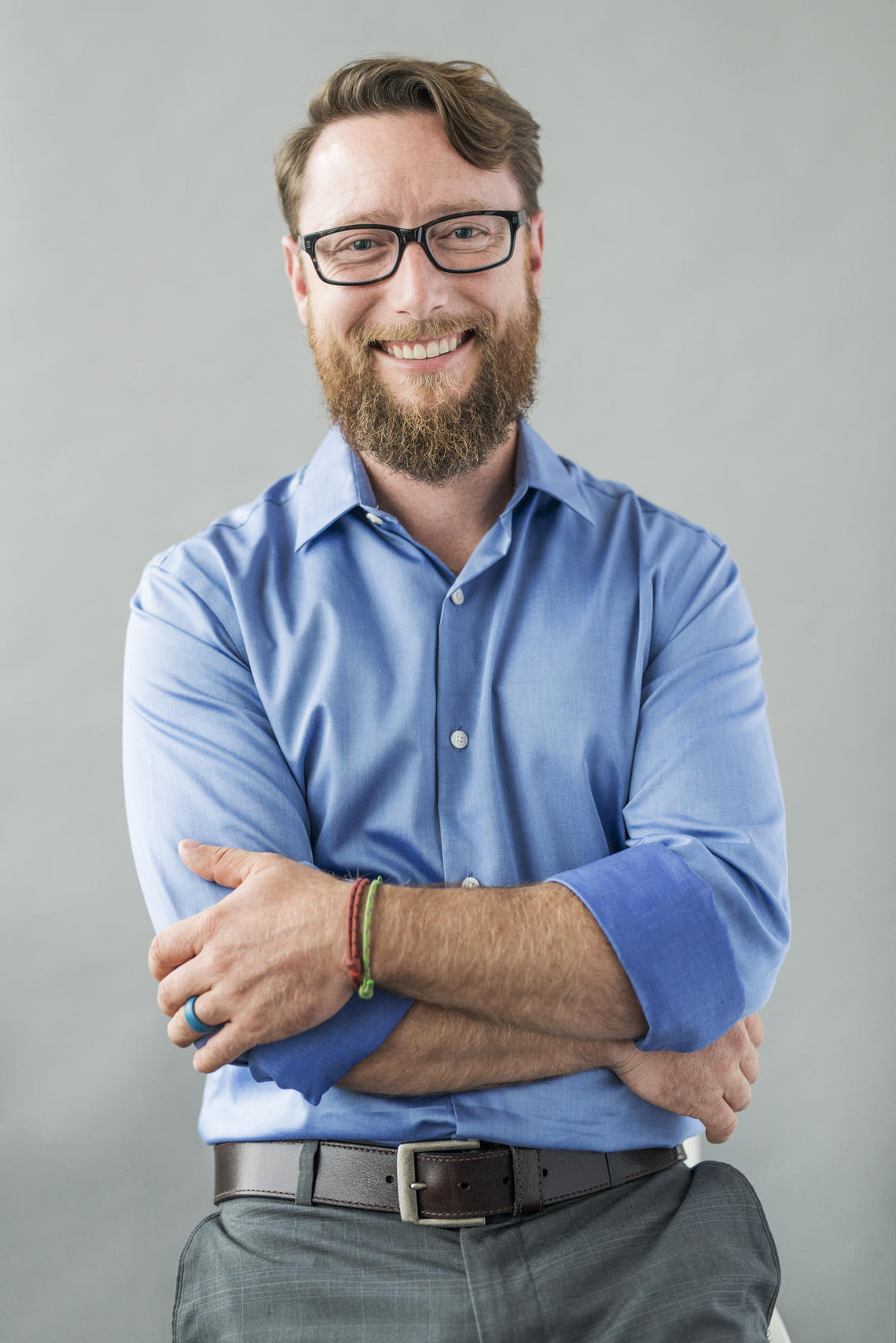Aug. 20, 2018
Caring for the Caregivers

The concept and field of caregiving has expanded as the demands on the healthcare system have increased. In today’s world, caregiving is provided by a diverse range of individuals — professional and nonprofessional — who either through necessity or interest in the quality of life and health have taken on the responsibility as a family or friend caregiver. However, balancing other competing demands takes its toll on that caregiver. Here are how some in the Faculty of Nursing community are trying to make it better for today’s caregiver.

Mike Lang
Web series allows caregivers to share stories, in their own words
January 2018 marked the launch of the website Stories for Caregivers, developed by TELUS Fund. One of the three series featured on the site — Being There: Helping Caregivers See Their Place in the Story — was hosted and directed by nursing doctoral student and health narrative specialist Mike Lang, MSc’15, and produced by local production company Roadwest Pictures. In each episode, Lang works with a different caregiver to create a short digital story about their journey caring for someone with a critical illness or injury. These stories are screened and discussed with their family, friends and colleagues, resulting in organic conversations that help the audience understand what it means to be a caregiver.
“In Canada, we have about eight million active caregivers, most of whom are unrecognized and unpaid, and this number is expected to double within 30 years,” says Lang, whose PhD research focuses on digital storytelling in a health-care setting. “We need to do more to support these caregivers who are invaluable to our system.
“In health care, we are very good at providing people facts and knowledge about illness or injury, but what we are not so good at is helping people learn how to live well despite what has happened to them,” says Lang. “Stories allow us to draw wisdom from other people’s lives and apply it to our own. They can teach us how to live well in the midst of challenging health-care experiences.”
Lang’s doctoral supervisor, Catherine Laing, BN’98, MN’08, PhD’13, whose program of research includes the therapeutic benefits of digital storytelling on paediatric and young adolescent patients affected by cancer, agrees that stories can be of huge benefit to everyone.
“This creative way to address any kind of health journey allows both a patient or former patient, their families and the health-care professional insight into how illness has affected them. Mike’s exploration with digital storytelling for caregivers will help others as they walk the same path.”

Nursing instructor Kimberly Shapkin, left and Loralee Fox, clinical nurse specialist, AHS.
Courtesy of Redpoint Media/Jared Sych
DOME course helps caregivers of dementia patients practice mindfulness
Mindfulness is key when caregiving for dementia patients, says clinical nurse specialist Loralee Fox, MN’09, who currently works for Alberta Health Services in specialized geriatric services at the Foothills Medical Centre.
“It’s about looking at ourselves and what we’re bringing into the picture as a caregiver, whether that be as a care partner or formal caregiver,” says Fox. She completed her Masters in Nursing at the University of Calgary with a focus on gerontology, specifically dementia. Her work focuses on person-centered care of those cognitively impaired with expertise on the nonpharmacological management of behaviours.
“We contribute through our own body posture, tone, language, our own responses and understanding of what is going on in the person with dementia,” she says. Last year, Fox, along with nurse practitioner and UCalgary nursing instructor Kimberly Shapkin, started co-teaching a new course aimed at caregivers and individuals working with dementia patients. DOME (Dementia Opportunities for Mindfulness Education) was first offered as a six-week course in fall 2017. Fox says participants in that first session ranged from formal caregivers, volunteer and paid caregivers to nursing homecare providers and family and friends of loved ones with dementia. Topics included everything from communication strategies and importance of self-care to mindfulness tactics.
“With small steps, we can shift from tragedy and suffering,” she says, “to healthy families and caregivers and communities that can do more to support, regardless of where they are living, so they can live with the disease rather than suffer through it.”

Loralee Fox, MN’09 is a clinical nurse specialist, Alberta Health Services.
Trish Helash

